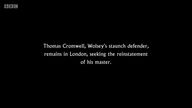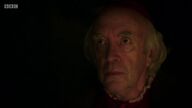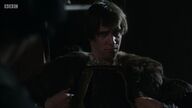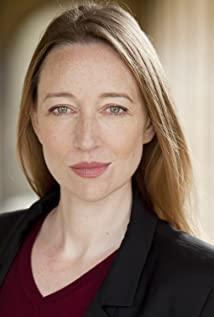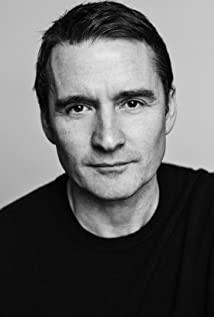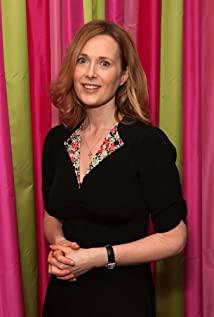Compared with the brutal erotic bloodthirsty of American dramas, British dramas are definitely much slower to heat up. Last year's BBC2 set of popular "Wolf Hall" is a typical British restraint. The play is adapted from British writer Hilary Mantel's two Booker Award-winning historical novels Wolf Hall and its sequel Bring Up the Bodies. Minskin) The lineup of the Taoist performance team reproduces the court power struggle in the period of Henry VIII of the Tudor Dynasty in detail, which is different from the cold-blooded killing in the official history. The whole article explains the history from the perspective of Thomas Cromwell event to win the voice of humanity among the wolves.
Little is known about the family of Thomas Cromwell. It is only known that he was born in Putney, outside London, in 1485, the son of a suburban London blacksmith. There are six episodes in the first season of the short play. The director is good at narrating parallel history and flashing back, while Thomas Cromwell, played by the old drama bone Mark Rylance, every eye, every face twitches or freezes The actions are intriguing. Why he eventually took over the enormous power in the court of King Henry VIII of England is not unrelated to Mantel's construction of his childhood image in the book.
A hungry, anxious and lonely childhood: his blacksmith father often drunkenly beat Thomas, and when he was seven, he lived at Cardinal Morton's house, where his uncle worked as a cook. At the age of nine, he witnessed an eighty-year-old infidel being burned alive. At the age of fifteen, he ran away from home after being beaten by his father. For the next ten years, he joined the French mercenary army, went on an expedition to Italy, worked as a servant in a family in Florence, and traveled between Rome, Venice and Antwerp. The banker and the cloth dealer...returned to England at the age of 30.
At the time of Henry VIII's reign, the United Kingdom, like the European countries at that time, was subject to the Roman Catholic Church. When it was dark and unclear, Thomas Cromwell's experience of traveling to various countries made him see an opportunity to climb up. With his shrewdness, kindness, and ambition, he became Cardinal Wolsey's lawyer and business consultant. When Wolsey saw him for the first time, he said, "Oh, finally someone lower than me has appeared!" Thomas dismissed it and kept silent. At this time, Wolsey was a stepping stone for him to enter the upper class based on the UK. He must regard Wolsey as a friend, listen to Wolsey's voice, and share his worries for Wolsey. When Wolsey was forced by the Catholic canon to help him divorce Catherine of Aragon, the Spanish princess, as Henry VIII had hoped, Cromwell appeared in time, and when he learned that Henry VIII wanted to remarry and reproduce the royal family, he began to Gradually approached Ann Boleyn, placed eyeliners everywhere, supported the Protestant Reformation at that time, and boldly suggested Henry VIII against the Holy See. Eventually, the British Parliament seceded from the Holy See, and the Archbishop declared Henry's marriage to Catherine annulled, thus legalizing his marriage to Ann Boleyn, the waitress. Thomas made great contributions to the success of Ann Boleyn, which impressed Henry VIII and planted the seeds of his desire for personal machinations.
Thomas Cromwell was a powerful man, claiming to have only one friend of Henry VIII. When Henry VIII passed out unexpectedly due to a knightly contest, Thomas Cromwell quickly asked his men to greet Princess Mary, the daughter of Catherine, the queen who had taken care of the abolition. This move, from Cromwell's point of view, was feared to fall into royal disputes to maintain orthodoxy, rather than selfishness, but it became Ann Boleyn's heart trouble later. In the film, Cromwell showed the tenderness of being a husband and a father when his wife and daughter suddenly died of illness, instructing his son to forget to save his life and fighting at the last moment in knightly fighting, and his widow when he moved down a political opponent. I am afraid that only his disciples can better appreciate the mercy.
Thomas Cromwell was not ignorant of the supremacy and inviolability of kingship, not that he did not know that the king is like a tiger. As the son of a humble blacksmith who travels through the turbulent court, he is able to observe his words and emotions, always grasp the joys and sorrows of Henry VIII, do his best to support Henry, and pay the price of the executioner for Henry VIII's desire. poke. For example, as the chief counselor of Henry VIII, he designed a plan for Princess Mary to marry Spain in order to avoid war, but was scolded and humiliated by Henry. He raised his crossed hands, walked away silently, and the camera returned to his childhood. His blacksmith father told him that crossing his hands would ease the pain.
In the film, we see that Queen Ann Boleyn failed to give birth to a prince to Henry VIII, which has become the biggest reason for Henry VIII to hate the queen. At this time, Thomas Cromwell had to deal with the court power of the Boleyn family and the covetousness of the old aristocratic officials, and at the same time he had to advise Henry VIII to depose Ann Boleyn. In fact, in the eyes of King Henry and Queen Ann Boleyn, Cromwell is a dog that can be kicked to death at any time. However, Cromwell once again chose Henry. He secretly investigated Ann Boleyn and planned to judge the noble forces of the Boleyn family. At the scene of the beheading of Ann Boleyn, the second queen of the Tudor Dynasty, Cromwell grabbed the arms of his disciples in the crowd and stared at the knife and axe hand to chop off Boleyn's head. At that moment, his inner drama was enough rich.
In these historical events, the director follows Mantel's narrative, not trying to recreate the lost youth of a blacksmith's son, but letting Cromwell's demeanor and unavoidable intrigue play out over the Tudor court. The so-called history is nothing more than the wolf-like competition between people, and in the politics of power and maneuver, it is assembled by distorted rumors and anecdotes. At the end of the first season of Wolf Hall, Henry VIII celebrated the ouster of Ann Boleyn and embraced Thomas Cromwell. The camera freezes on Cromwell's rigid face, and we see a meticulous, delicate, self-conscious, self-disciplined and unsure of the future; a self-made low-level diaosi, who can never fade away from the shadow of his identity as the son of a blacksmith, he must also The joys, sorrows and sorrows are hidden deeper, and the king's power has been reduced to a pawn in the political world of maneuvering.
Besides, the aura of Ann Boleyn in the play is a lot less interesting. If Keira Lightley played the role, it would be much more perfect. Looking forward to the release of the second season of "Wolf Hall", Mantel's writings stir up the more vivid Cromwell of the Tudor Dynasty.
View more about Wolf Hall reviews



